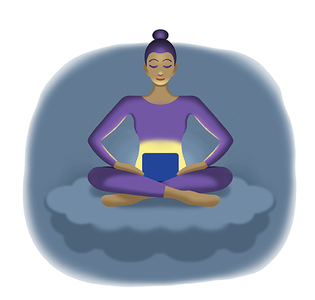
Gregory Nemec
You probably can’t buy happiness. But you might find it online for free.
And a lot of us are looking. To date, well over three million people have enrolled in The Science of Well-Being—a Coursera course, open to all at no cost and taught by Yale psychology professor Laurie Santos. It’s an outgrowth of Santos’s undergraduate offering, Psychology and the Good Life, which debuted in the spring of 2018 and became the most popular course in Yale’s history. “The course,” says Belinda Platt, of Yale’s Poorvu Center for Teaching and Learning, “outlines how and why we get happiness wrong, along with what the science says about boosting well-being with positive habits.”
In addition to learning principles of positive psychology, participants are encouraged to engage in behaviors known to improve psychological health, such as keeping gratitude lists and improving sleep habits.
To determine whether these courses work, researchers from Yale and Johns Hopkins used a self-report instrument to measure subjective well-being. They compared pre- and post-course survey results for 2,250 participants in The Science of Well-Being with results from 2,637 participants in another Yale Coursera offering, Introduction to Psychology. The groups started with equivalent levels of happiness. Those who completed either course increased their well-being, but participants in Well-Being showed greater improvement. The results appeared in the journal PLOS ONE.
The researchers emphasize that such courses are no substitute for mental health counseling. But they also note the potential for public health. The course team is developing ways to reach middle and high school students, in hopes that the right online courses can help them establish healthier behavioral habits earlier in life.
 loading
loading